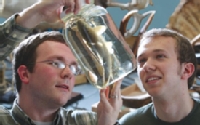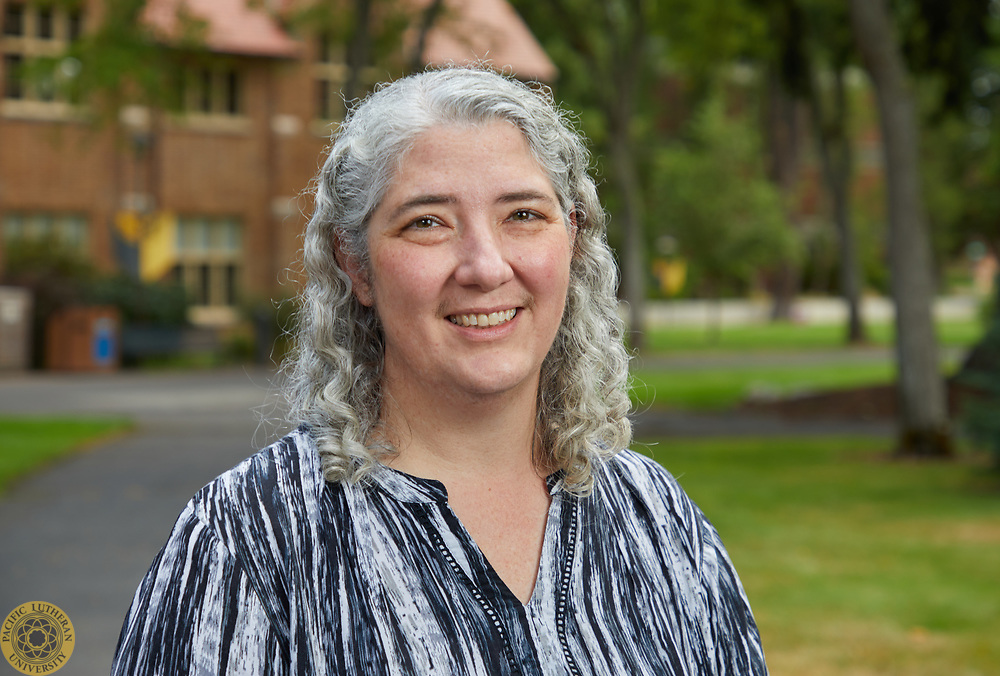Page 7 • (567 results in 0.042 seconds)
-
Problems SOCI 413: Criminological Theories Statistics 4 semester hours, if this minor is selected STAT 231: Introductory Statistics On approval by the public affairs advisor, up to 8 semester hours may be earned through participation in an internship program as a substitute for courses listed above (except POLS 345). Internship opportunities are offered through several departments, and through the Cooperative Education Program, and provide students with actual work experience in diverse public and
-

You Ask, We Answer: Do you have Engineering? Posted by: shortea / February 24, 2023 February 24, 2023 At PLU, students can pursue engineering in two formal ways. Option 1 We offer a dual-degree engineering program through partnerships with both Columbia University (NYC) and Washington University (St. Louis). In this program, a student completes their introductory coursework in mathematics, science, and engineering as well as their general education requirements at PLU (in 3 years) before
-
Course Title ANTH 101 Introduction to Human Biological Diversity - NW BIOL 111 Biology and the Modern World - NW BIOL 116 Introductory Ecology - NW BIOL 201 Introductory Microbiology - NW BIOL 205 Human Anatomy and Physiology I - NW BIOL 206 Human Anatomy and Physiology II - NW BIOL 225 Molecules, Cells, and Organisms - NW BIOL 226 Genes, Evolution, Diversity, and Ecology - NW CHEM 103 Food Chemistry - NW CHEM 104 Environmental Chemistry - NW CHEM 115 General Chemistry I - NW CHEM 116 General
-

Michael Dollinger Professor Emeritus of Mathematics Email: dollinmb@plu.edu Status:Emeritus Professional Biography Education Ph.D., Mathematics, University of Illinois, 1968 M.S., Mathematics, University of Illinois, 1965 B.S., Mathematics, University of Rochester, 1963 Areas of Emphasis or Expertise Mathematics Statistics See "Personal" tab for list of publications and other positions held Biography Current position Pacific Lutheran University 1981 – 1998. Emeritus Professor, Department of
Contact InformationArea of Emphasis/Expertise -

classes they will take are Biology 125 and 126. The two-semester set, called the biology introductory core sequence, seeks to lay the educational foundation for the many students who hope to enter fields of biological study including the medical profession. Sean Boaglio ’13 is one of those students. He says he’s seen a lot of students – the best at their high schools – have difficulty adjusting to the intensity of the coursework. It is just so different from high school. “You really have to connect
-
health, or veterinary medicine should note the specific pre-professional mathematics and science requirements in the appropriate sections of this catalog. Minor20 semester hours, including: At least 12 semester hours must be taken in residence. If a statistics course is used as part of the 20-hour requirement, then it must be STAT 232 (psychology class) taught by a member of the psychology department. The minor in psychology is designed to supplement another major in the liberal arts or a degree
-
ACS Safety Information The American Chemical Society (ACS) maintains a number of important documents on chemical safety. They can be found on the following links. ACS Safety Information ACS Committee on Chemical Safety Safety in Academic Chemistry Laboratories: Volume 1 (Student Edition, pdf file) Safety for Introductory Chemistry Students Brochure (pdf file)
-
Bachelor of Arts or Bachelor of Science MajorFor either the Bachelor of Arts or Bachelor of Science degree, the student must take our introductory core sequence (BIOL 225 and 226) and a semester of genetics (BIOL 330). Completion of the two-course introductory core with grades of C- or higher is required before upper-division biology courses can be taken. Furthermore, BIOL 330 must be completed within five semesters of starting the introductory core series. To ensure breadth of study in biology
-
Courses PSYC 101 : Introduction to Psychology - ES An introduction to the scientific study of behavior and mental processes. Topics include learning, memory, perception, thinking, development, emotion, personality, mental illness, and social behavior. (4) PSYC 242 : Advanced Statistics and Research Design A continuation of Statistics 232 and accompanying lab taught by members of the psychology department. Topics include single- and multi-factor experimental designs and analyses of variance
-

Laboratory CHEM 115L: General Chemistry Laboratory CHEM 403: Introductory Biochemistry CHEM 405: Advanced Biochemistry and Laboratory CHEM 499: Chemistry Senior Capstone
Do you have any feedback for us? If so, feel free to use our Feedback Form.


